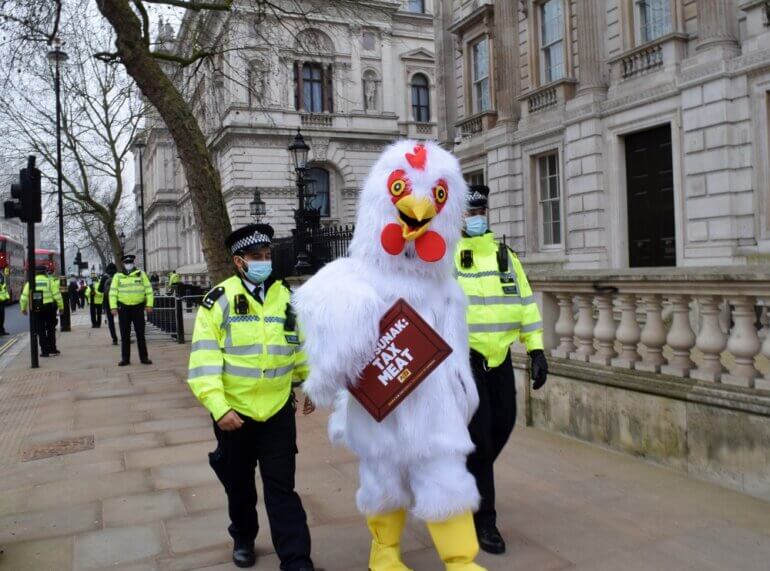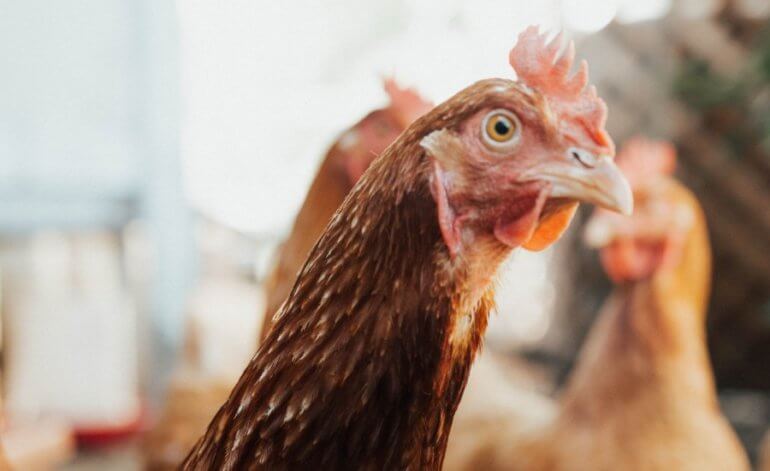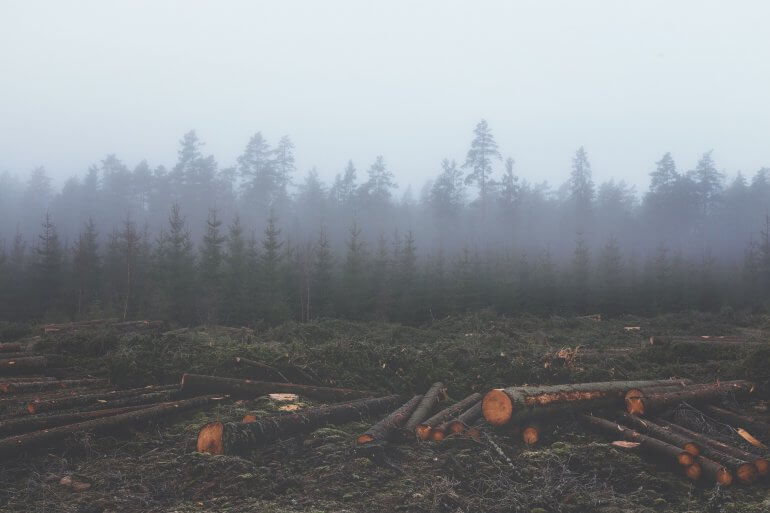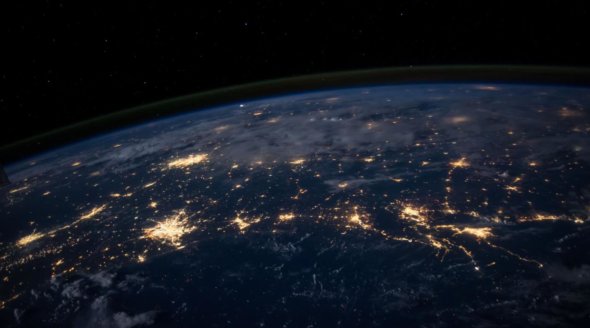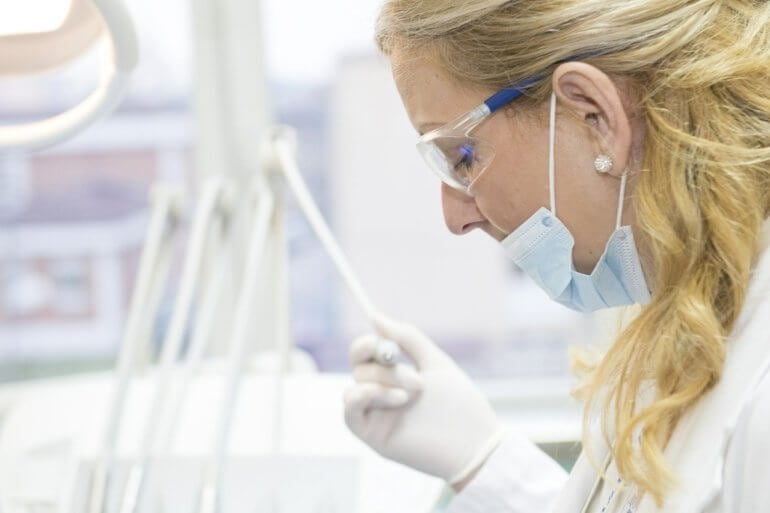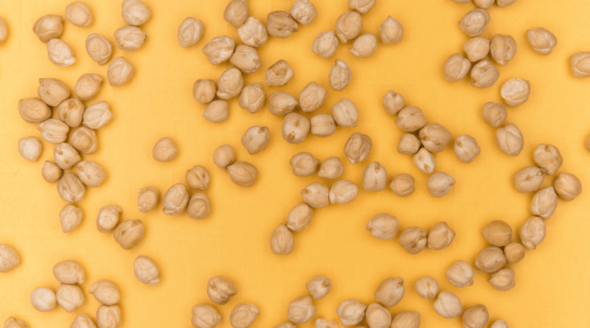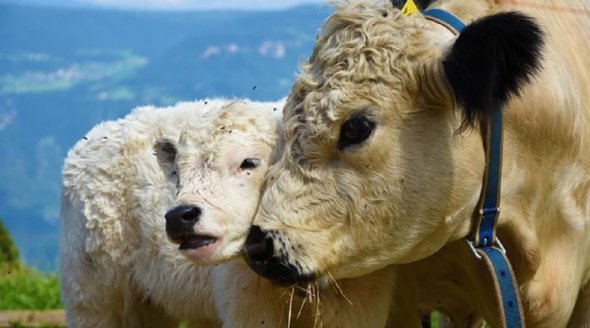Hey Rishi Sunak: It’s Time to Introduce a Meat Tax
A PETA “chicken” crashed Chancellor of the Exchequer Rishi Sunak’s photo call today, demanding a meat tax.
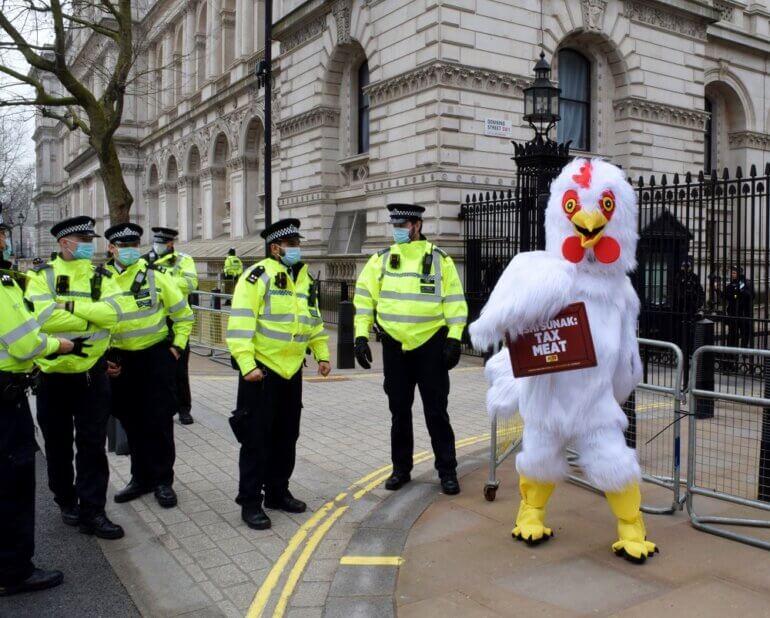
Only minutes after arriving for the socially distanced action – that aimed to remind the Chancellor that meat markets and the desire for meat is what caused the COVID-19 pandemic in the first place – PETA’s “chicken” was threatened with a fine and urged to move on.
The action follows PETA’s previous calls for a meat tax, including in a letter to Sunak sent last year. The group notes that such a tax would ease pressure on the National Health Service, minimise the economic fallout of the COVID-19 pandemic, and help combat the climate crisis.
We at PETA aren’t the only ones who see the benefits of a meat tax. A 2016 Oxford University study indicated that a sin tax of 40% on beef, 20% on dairy, and 8.5% on chicken flesh could slash greenhouse-gas emissions and save half a million human lives a year by curbing diet-related illnesses. This is because a surcharge on meat would help deter people from eating as much of it, thereby reducing the environmental impact and health problems associated with it. The lead author of the study predicts that a sin tax would make a difference, saying, “[I]f you’d have to pay 40% more for your steak, you might choose to have it once a week instead of twice.”
Chatham House, too, has concluded that such a tax would be one of the “most effective” ways to reduce meat consumption and that it would bring public health benefits, as the proceeds could be used to subsidise healthy, environmentally friendly foods, including fruit, vegetables, and tofu.
Meat, Dairy, and the Environment
The meat, egg, dairy, and fishing industries are not only relentlessly cruel to animals but also a nightmare for the environment. Raising animals for food is “one of the top two or three most significant contributors to the most serious environmental problems, at every scale from local to global”, as stated in a United Nations report.
Animal agriculture is responsible for 14% to 18% of greenhouse-gas emissions – more than the combined emissions from all forms of transportation. Cows alone produce more than 560 billion litres of methane per day.
The meat, dairy, and egg industries also have the world’s largest land footprint, changing the face of our planet. They take up one-third of the Earth’s land surface and are responsible for 30% of biodiversity loss. Humans are stealing land from wild animals to graze cattle or grow soya to feed the billions of cows, pigs, sheep, chickens, and other animals exploited and killed for food.
Meat and Dairy Are Dangerous
Not only are blood- and offal-soaked abattoirs petri dishes for viruses that cause diseases like COVID-19, they also pose a serious threat of “superbugs”.
For years, scientists have warned that filthy farms crammed full of sick animals are breeding grounds for these new, antibiotic-resistant bacteria. Some studies suggest that by 2050, more people will be dying of diseases caused by such pathogens than of cancer.
In addition to carrying a high risk of contamination from pathogens – including E coli, campylobacter, and salmonella – meat is laden with artery-clogging saturated fat and contains no fibre. The World Health Organization has designated processed meat as carcinogenic, placing it in the same category as cigarettes.
Each person who goes vegan reduces their own risk of suffering from heart disease, obesity, cancer, strokes, hypertension, type 2 diabetes, and numerous other health concerns – and spares nearly 200 animals every year daily misery and a terrifying death.
What You Can Do
The best thing we can do for other animals, our health, and the planet is to go vegan. Not eating meat, eggs, dairy, or fish is the simplest way for each person to reject the cruelty that animals are subjected to in abattoirs and on factory farms in the UK and elsewhere.
To get started, order a free vegan starter kit full of tips and advice for every part of your journey:

